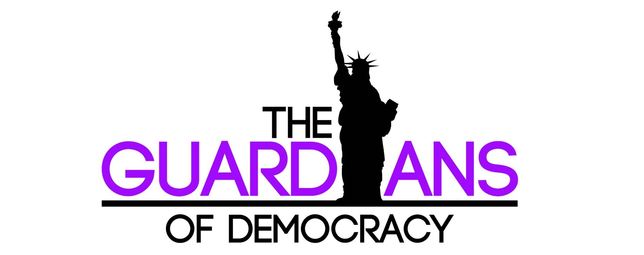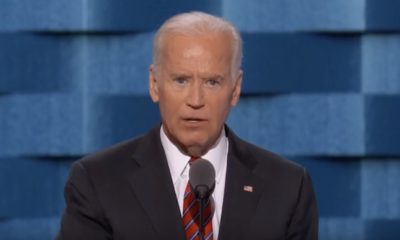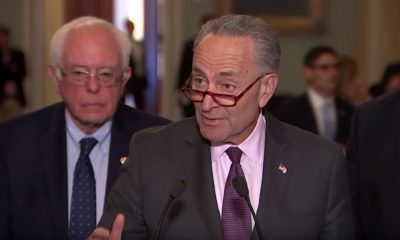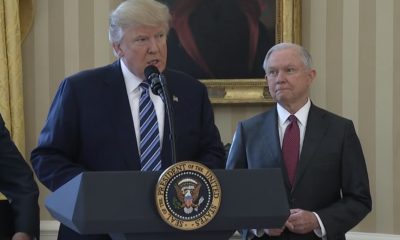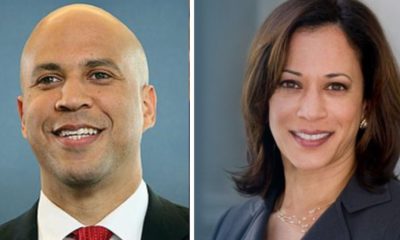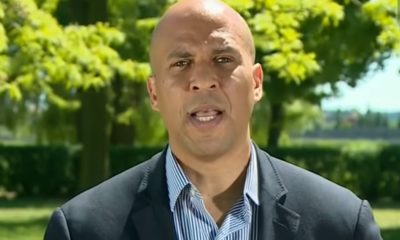Drug Liberalization
Sen. Cory Booker Introduces Bill To Legalize Marijuana, Punish States For Discriminatory Arrests
Sen. Cory Booker (D-N.J.) is introducing a bill called the “Marijuana Justice Act of 2017,” ending the federal prohibition on marijuana.
If enacted marijuana would be descheduled, existing marijuana convictions would be expunged, and federal money would be withheld from states that have racially disproportionate arrest rates. Also, a “Community Reinvestment Fund” of $500 million would be created to invest in communities most impacted by the war on drugs, for programs such as job training, reentry, community centers, etc.
“Descheduling marijuana and applying that change retroactively to people currently serving time for marijuana offenses is a necessary step in correcting this unjust system,” Booker said in a press release. “States have so far led the way in reforming our criminal justice system and it’s about time the federal government catches up and begins to assert leadership.”
In a tweet, the senator said the bill would “legalize marijuana at federal level.”
Today at 12:30pm ET I’m introducing the Marijuana Justice Act to legalize marijuana at federal level. Watch live: https://t.co/nrkyXyV9cv
— Cory Booker (@CoryBooker) August 1, 2017
During a Facebook Live video, Booker said that states with legal marijuana “are seeing decreases in violent crime… They’re seeing increases in revenue… They’re seeing their police forces being able to focus their time, energy and resources on serious crime.”
“Our country’s drug laws are badly broken and need to be fixed,” Booker said in a statement. “They don’t make our communities any safer.”
“The question is no longer ‘should we legalize marijuana?’; it is ‘how do we legalize marijuana?’ We must do so in a way that recognizes that the people who suffered most under prohibition are the same people who should benefit most under legalization,” said Queen Adesuyi, policy associate at the Drug Policy Alliance. “From disparate marijuana-related arrests and incarceration rates to deportations and justifications for police brutality – the war on drugs has had disparate harm on low-income communities and communities of color. It’s time to rectify that.”
“In New Jersey, marijuana prohibition has disproportionately harmed communities of color,” said Roseanne Scotti, New Jersey State Director for the Drug Policy Alliance. “In our state, African Americans are three times more likely to be arrested for marijuana possession than whites even though both use marijuana at similar rates. Anecdotal evidence suggests similar disparities for Latinos. Marijuana legalization on the federal and state level must be fair and equitable and must repair past harms to communities of color. It is time to right the wrongs of prohibition.”
“Ending federal marijuana prohibition would bring the law in line with the opinion of the growing majority of Americans who want states to be able to enact their own marijuana laws without harassment by the DEA. By divesting in prisons and reinvesting in job training and re-entry programs, this bill would move our country forward and prioritize building up our communities,” said attorney Shaleen Title, a founding board member of the Minority Cannabis Business Association and founder of THC Staffing Group.
